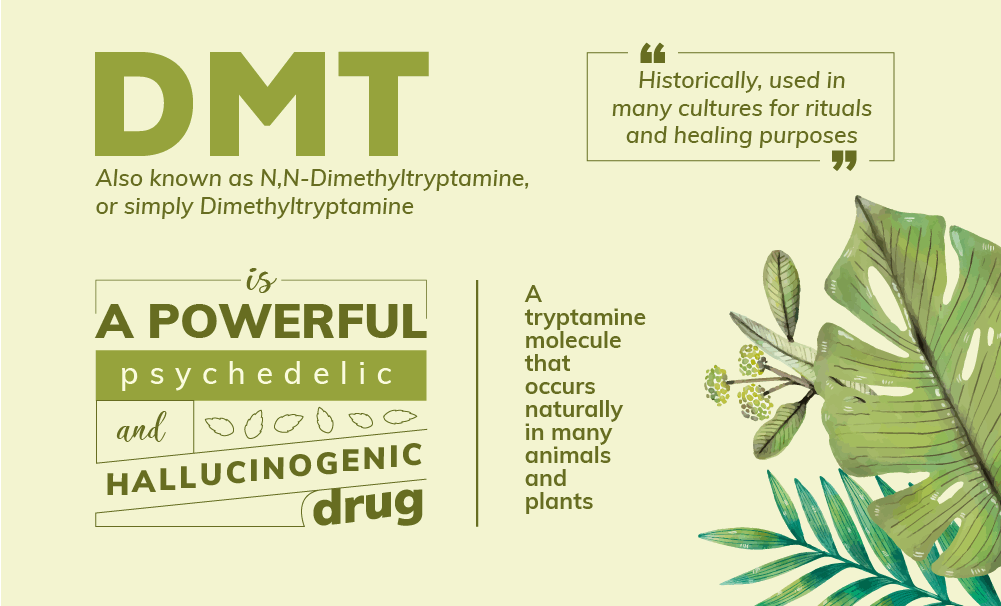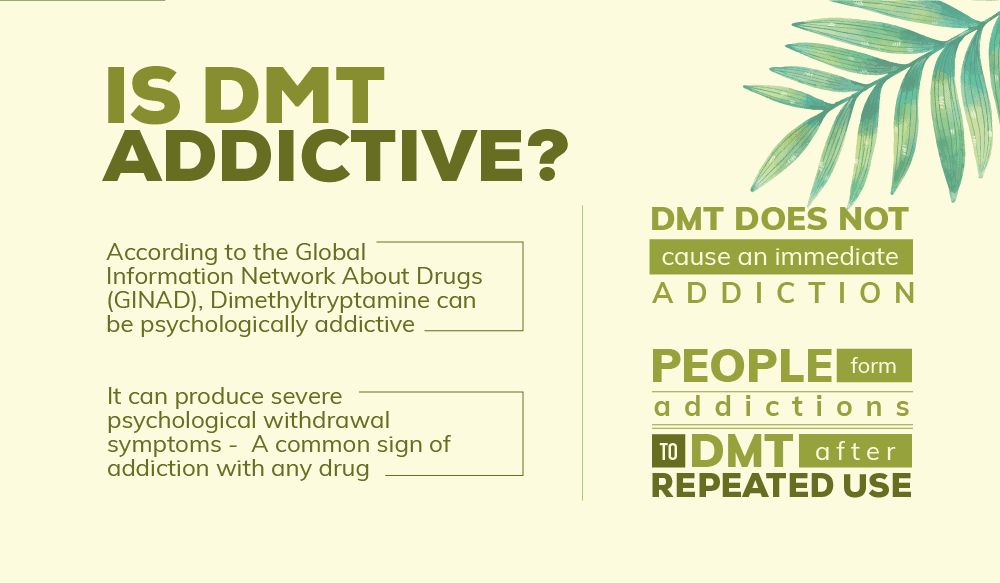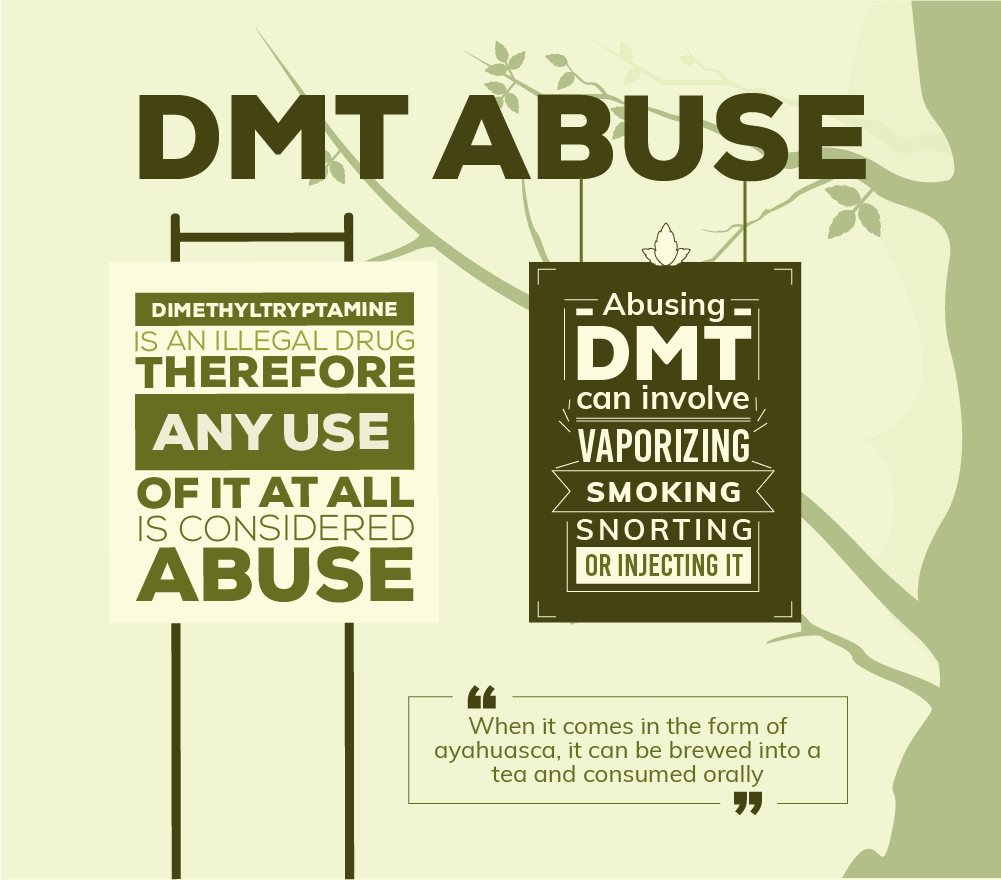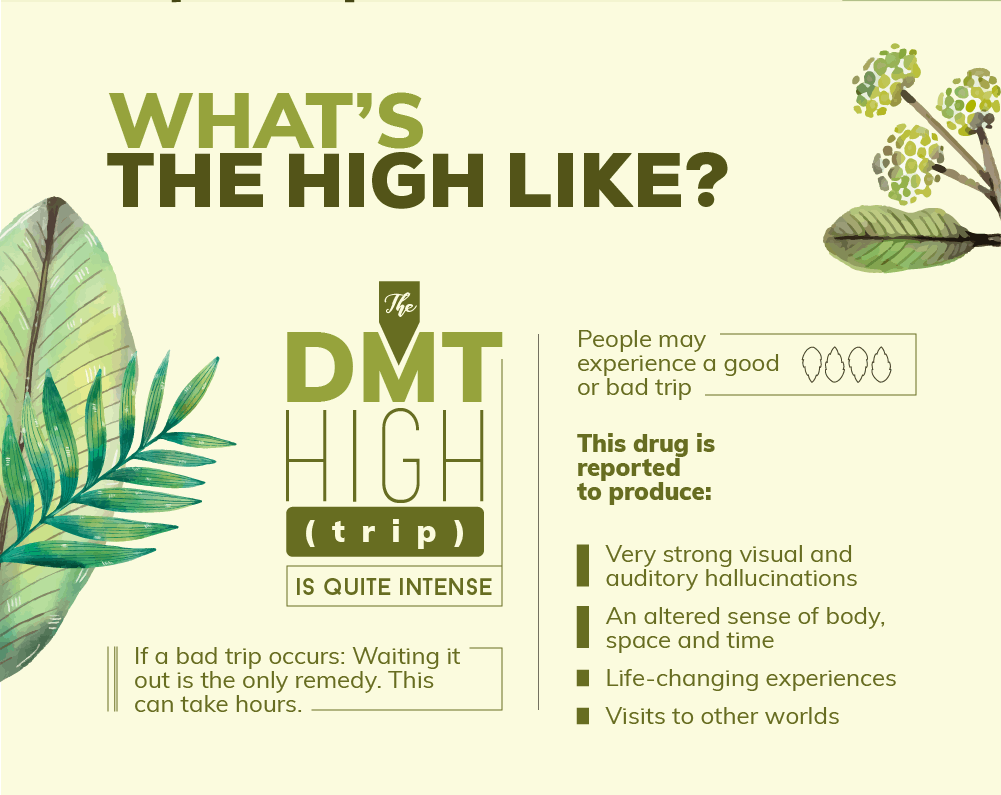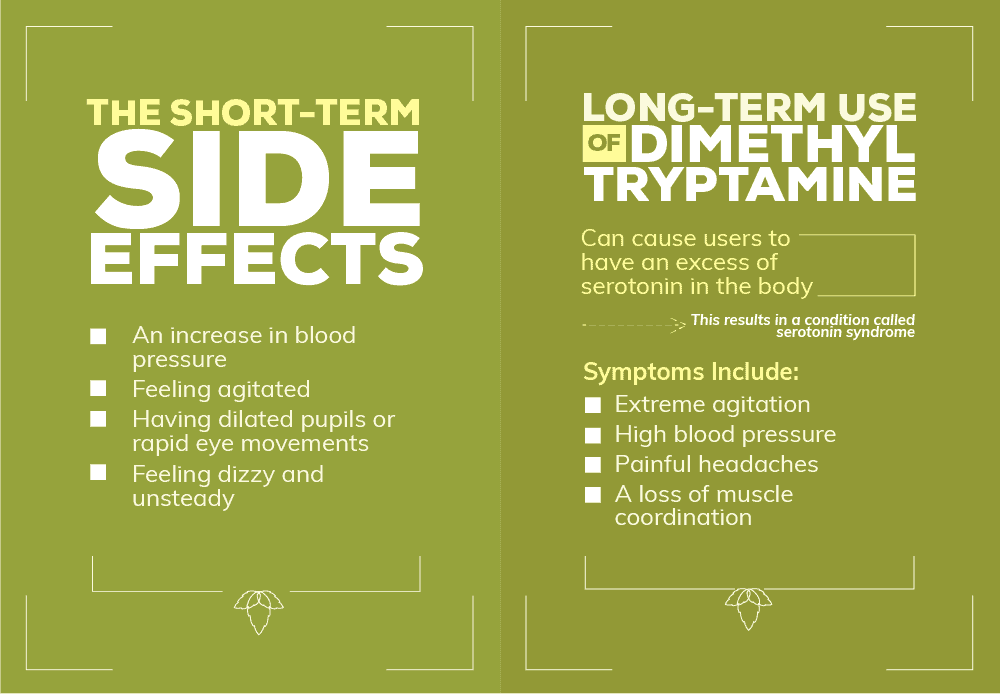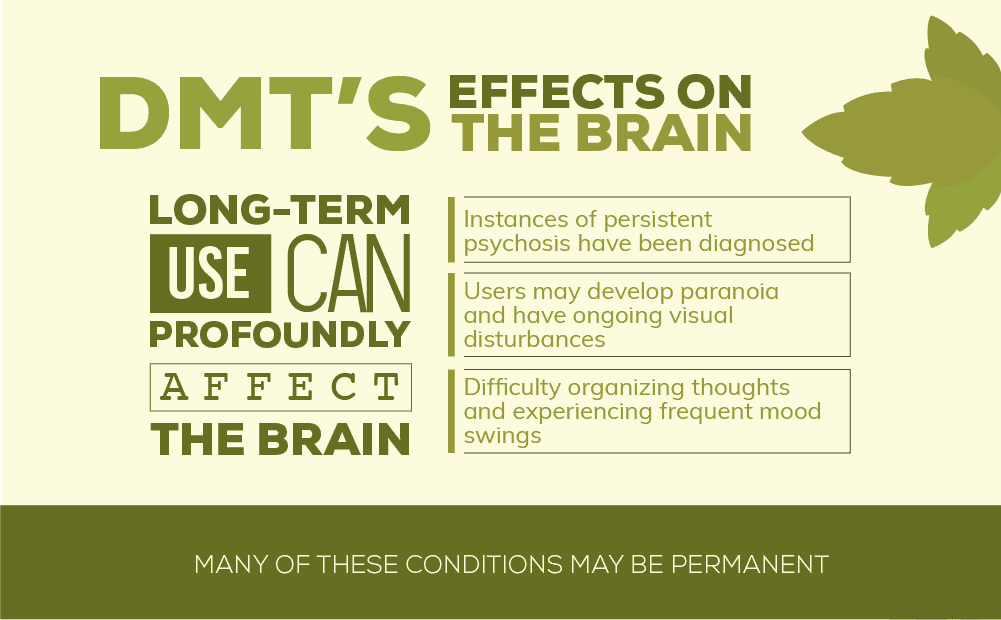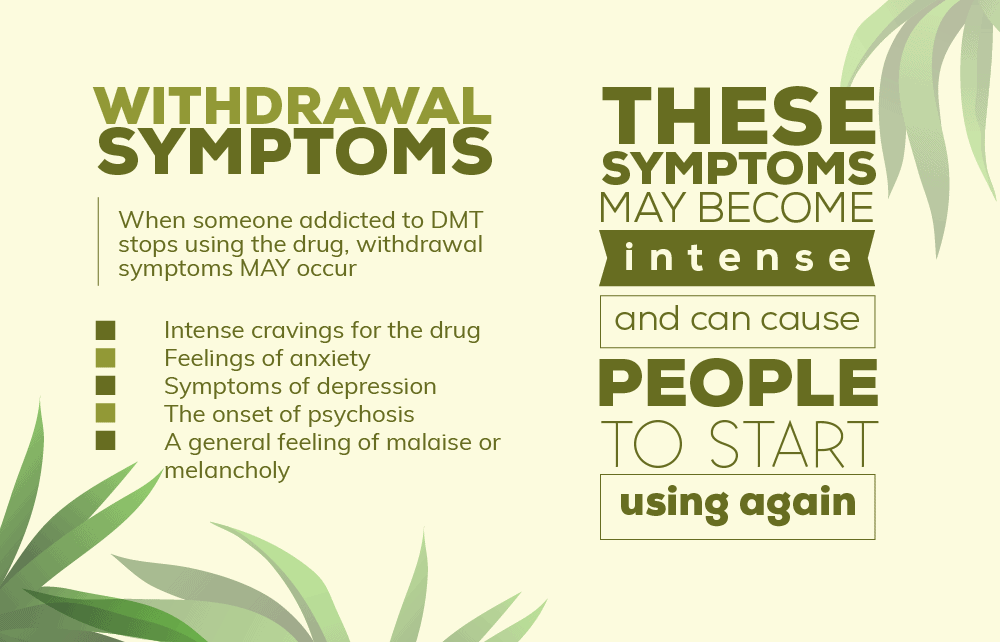Dimethyltryptamine (DMT) has gained immense popularity over the past few years. With its time in the spotlight of podcasts, comedy specials, and other media, it has become a buzzword that many are familiar with. However, there is still a lot of confusion and misconceptions surrounding this powerful psychedelic substance. Here’s what to know about DMT drug abuse: it’s still a substance that can have serious short- and long-term side effects.
Substance abuse treatment can help you or a loved one find a better way forward. Addiction is not a life sentence. Call 888.450.2153 to get help today.
The Truth About DMT
DMT is a drug that has grown in popularity in recent years, and abusing it has become more common. There is a lot of misinformation out there about DMT. If you’re currently using it, you need to know the truth. Many drugs, this one included, are thought of as safe. DMT is often believed to be risk-free because it’s considered natural. Some even boast about it as being a way to treat opiate addiction or help with anxiety.
What Is DMT?
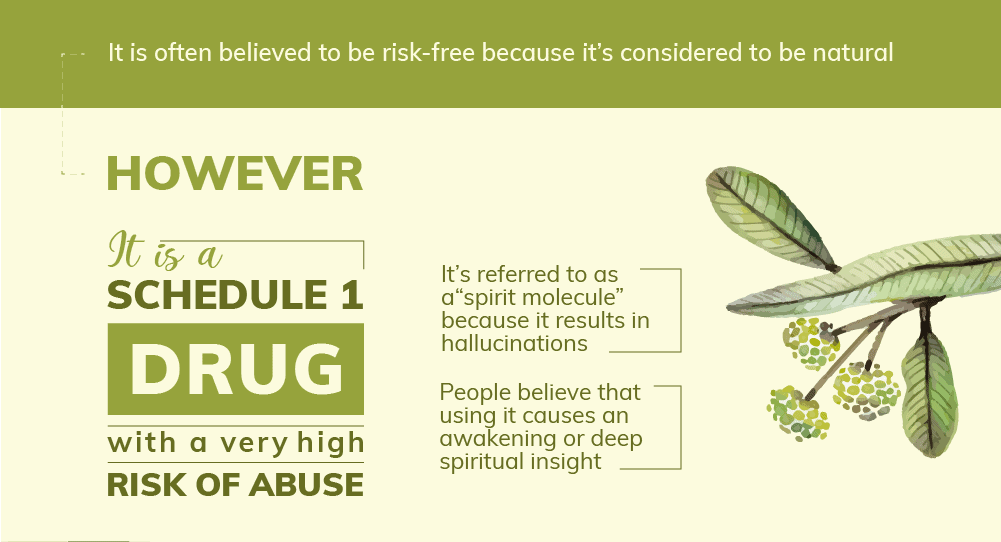
DMT occurs naturally in many animals and plants. It is a powerful psychedelic and hallucinogenic drug. The substance is not as well known as other similar drugs. Most people are much more familiar with LSD or magic mushrooms. People who use hallucinogens do so because of the psychedelic high they produce.
DMT is often called a “spirit molecule” because it results in hallucinations. People believe that using it results in an awakening or deep spiritual insight. DMT is sometimes also called:
- Dimitri
- Businessman’s Special
- Fantasia
- Businessman’s Trip
- 45-Minute Special
Regardless of the name, experimenting with DMT can be dangerous—especially if you’re at risk for any mental health conditions.
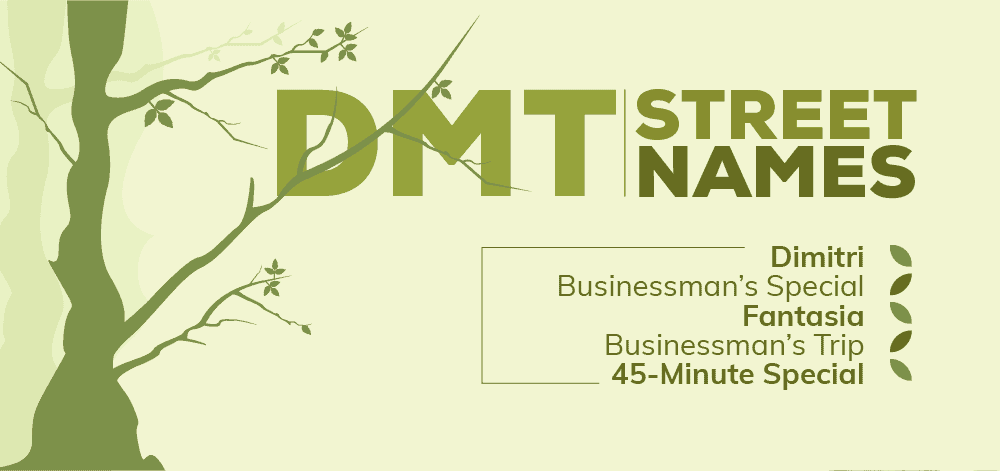
Is DMT Medicinal?
Historically, this drug has been used in many cultures for rituals and healing purposes. However, it is a Schedule I drug, which means it has no accepted medical use and has a high potential for abuse. The addictive potential of the DMT drug has been proven time and time again.
Can DMT Be Used to Treat Addiction?
DMT is not approved to treat opiate addiction or any other type of addiction. However, the theory behind it seems to make sense. Some people have been proponents of using the drug to treat addiction for quite some time. They claim that drugs like ibogaine and ayahuasca (which contain DMT) are very effective at treating addiction. The belief is that the human body naturally produces tiny amounts of DMT, which affects moods. They argue that with increased levels in the body, addiction can be overcome fairly easily.
The fact is, DMT is not regulated nor has it been studied enough to be proven effective. The negative side effects that can occur as a result of using it may outweigh any potential benefits.
Does DMT Cure Anxiety, Mental Health, or Other Issues?
Along with addiction, DMT is believed to treat anxiety, depression, PTSD, and several more issues. Again, this has never been proven to be true. This substance is not capable of curing anxiety or any other mental health condition. In fact, no scientific cure has been found.
A simple search will uncover a dozen more conditions that people claim this drug can cure. Some individuals claim it can treat multiple sclerosis. Others claim that it can reduce seizures in those with seizure disorders. Add to that a list of several mental health conditions, and this appears to be a miracle cure. The truth is that it is nothing of the sort. Until more is known about DMT, it should be regarded as an illegal substance. Using it is very dangerous due to its addictive potential and harmful side effects.
DMT: Drug Addiction Potential
There’s a popular belief that, like other hallucinogens, there is no risk of addiction at all. This is not the case—DMT can be psychologically addictive. Because of this, it can produce severe psychological withdrawal symptoms. This is a common sign of addiction to any drug. It’s important to remember that forming a DMT addiction does take time and begins with abuse.
What to Know About DMT Drug Abuse
DMT is an illegal drug, which means that any use of it at all is considered abuse. It is difficult for even researchers to obtain. Occasionally, though, it becomes available on the street. Abusing DMT can involve vaporizing, smoking, snorting, or injecting it. When it comes in the form of ayahuasca, it can be brewed into tea and consumed orally.
People form addictions to DMT after using the substance repeatedly. It’s not a drug that causes an immediate addiction. However, it may not take long to become addicted. Like other substances, DMT changes the chemical balance of the brain. It produces excess endorphins, which create a sense of pleasure. Over time, individuals may not be able to experience pleasure without it.
How DMT Changed Me: One Person’s Story
This person’s story highlights how dangerous DMT abuse can be. Even using it just once can bring on unpleasant, distressing side effects.
“DMT ruined my life. Now, I don’t say that lightly. It honestly did, and I will never be the same after experiencing this powerful, hallucinogenic drug. The first time I tried this substance, I was a fairly new drug user. I had used marijuana in the past, but that was as far as I had gotten. Someone had it at a party, and I decided to smoke it with some friends. It felt like I was instantly transported into another realm.
I used DMT more than one time. My first use of it was wild—I saw bright colors and beautiful creatures, and there was a unique energy there. I tried to experience this again and again, but my subsequent trips weren’t as pleasant. Not by a long shot. I remember:
- Monsters with arms like snakes
- Evil creatures throwing up black sludge
- A sensation like I was being tortured
- Feeling like I was choking
- Being unable to breathe
To this day, those bad trips have affected me. I don’t know if you would say I have PTSD, but if not, it’s close. I still wake up seeing these terrible beings and feeling awful. It’s been years since I’ve even looked at DMT.”
DMT Drug Use Facts: Side Effects
DMT is powerful, and there are many different side effects that go along with using it. Side effects may vary depending on how long the drug has been used.
Short-Term Side Effects
When DMT has been used short-term, common side effects include:
- Increased blood pressure
- An increase in heart rate
- Feeling agitated
- Having dilated pupils or rapid eye movements
- Feeling dizzy and unsteady
- Tightness or pain in the chest
Of course, side effects may be different depending on the trip or high. Some people may also experience nausea, vomiting, and/or anxiety after a particularly bad trip.
Long-Term Side Effects
Long-term use of DMT is especially dangerous. It can cause lead to too much serotonin in the body. This results in a condition called serotonin syndrome. When this occurs, symptoms include:
- Extreme agitation
- Extreme confusion
- High blood pressure
- Painful headaches
- A loss of muscle coordination
It’s also possible to develop seizures, go into respiratory arrest, or slip into a coma.
DMT’s Effects on the Brain
With long-term use of this substance, the brain can be profoundly affected. Instances of persistent psychosis have been diagnosed. Users may develop paranoia and have ongoing visual disturbances. They may be unable to organize their thoughts and have frequent mood swings as well. Many of these conditions may be permanent.
Individuals who are at risk of developing a mental health condition may be at an increased risk of developing one after using DMT. People who are predisposed to psychosis or schizophrenia, in particular, may find that their conditions worsen after taking this drug.
DMT Withdrawal Symptoms
Once someone with a DMT drug addiction stops using this drug, withdrawal symptoms may occur. Not everyone experiences DMT withdrawal, but those who have reported:
- Intense cravings for the drug
- Feelings of anxiety
- Symptoms of depression
- The onset of psychosis
- A general feeling of malaise or melancholy
These symptoms may become intense, and they can drive anyone back to using again. This is why people who wish to recover should opt for a hallucinogenic drug rehab program. This offers them the best chance of successfully stopping their use of this substance.
Call Northpoint Washington to Get Help
Here’s what to know about DMT drug abuse: it’s unregulated, dangerous for people with mental health issues, and can cause serious long-term side effects. If you or a loved one is struggling with DMT, don’t wait to get help. Contact Northpoint Washington online today or at 888.450.2153 to get started on your journey toward recovery.

